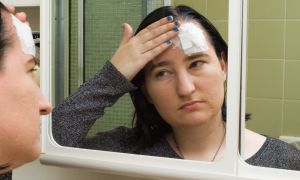Advertisement
Your nervous system is made up of your brain, your spinal cord and all of the nerves in your body. It sends messages back and forth between your brain and the rest of your body to communicate important signals. For example, if you step on something sharp, the nerves in your foot send a pain signal up your spinal cord to your brain. When your brain recognizes the danger, it sends another signal down your spinal cord to the nerves in your leg and foot muscles, telling them to pull away from the object. Your nervous system affects every function of your body, including:
- Thinking, learning and remembering
- Use of your arms and legs
- Breathing, digestion, bladder and bowel control, and other bodily functions
- Eyesight, hearing, taste, smell and touch

Continue Learning about Brain and Nervous System
Important: This content reflects information from various individuals and organizations and may offer alternative or opposing points of view. It should not be used for medical advice, diagnosis or treatment. As always, you should consult with your healthcare provider about your specific health needs.










